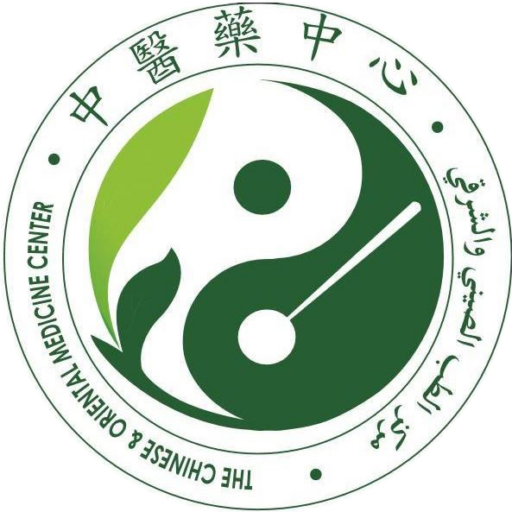
Depression, a multifactorial psychological disorder, poses increasing challenges in modern societies due to its pervasive impact on emotional, cognitive, and physiological functioning. Traditional Chinese Medicine (中医 Zhōngyī) offers a holistic framework that integrates mind and body, emphasizing the dynamic balance of Qi (气), Blood (血), Yin (阴), and Yang (阳). This article explores depression from a psychological perspective within TCM, examining classical theories, diagnostic frameworks, and treatment modalities. It argues that TCM not only treats the physiological symptoms of depression but also addresses the emotional and cognitive imbalances underpinning the disorder, providing a unified biopsychological approach to mental health.
1. IntroductionDepression in contemporary psychology is primarily understood as a mood disorder characterized by persistent sadness, loss of interest, and cognitive distortions. In contrast, Traditional Chinese Medicine (TCM) conceptualizes emotional disturbances as manifestations of systemic disharmony within the body-mind continuum. The Huangdi Neijing (《黄帝内经》, The Yellow Emperor’s Inner Classic) emphasizes that “when the mind is calm and the Qi harmonious, the spirit is preserved” (心安气和,精神乃治). This statement reflects the TCM belief that psychological well-being is inseparable from physiological balance.
2. Theoretical Foundations of Depression in TCM2.1 The Unity of Body and Mind (身心合一 shēn xīn hé yī)TCM rejects the dualism that separates body and mind. Psychological distress is seen as a disturbance of Shen (神, spirit), which resides in the Heart (心). Depression (郁证 yù zhèng) is thus viewed as a stagnation or disturbance of Qi—especially of the Liver (肝 gān)—affecting the smooth flow of emotions and thought.2.2 The Role of the Liver in Emotional RegulationThe Liver governs the free flow of Qi (肝主疏泄 gān zhǔ shū xiè). When Liver Qi is constrained (肝气郁结 gān qì yù jié), it leads to emotional suppression, irritability, or melancholia. Over time, this stagnation can transform into Heat (火 huǒ) or lead to Blood deficiency (血虚 xuè xū), resulting in symptoms such as fatigue, insomnia, and hopelessness—key features of depression.
2.3 The Heart and Spleen AxisThe Heart houses the Shen (神), and the Spleen governs thought and cognition (思 sī). Prolonged worry (思虑过度 sī lǜ guò dù) injures the Spleen, leading to deficient transformation of nutrients and Qi. Consequently, the Shen becomes unsettled, manifesting as depressive rumination and mental fatigue.2.4 The Kidney Essence and WillpowerThe Kidneys store Jing (精), which nourishes both brain and willpower (志 zhì). Chronic depression or trauma can deplete Kidney Jing, resulting in a loss of motivation, apathy, and fear of the future—features aligning with depressive anhedonia in psychology.
3. Pathogenesis and Psychological CorrelatesTCM’s pattern differentiation (辨证 biàn zhèng) allows clinicians to identify specific pathomechanisms underlying depression. Each syndrome reflects a distinct psychophysiological profile:TCM Syndrome Psychological Manifestation Typical SymptomsLiver Qi Stagnation (肝气郁结) Repressed anger, frustration, indecision Chest tightness, sighing, mood swingsHeart and Spleen Deficiency (心脾两虚) Worry, overthinking, low self-esteem Palpitations, fatigue, poor appetiteYin Deficiency with Empty Fire (阴虚火旺) Anxiety, restlessness, insomnia Night sweats, irritability, dry mouthPhlegm Obstruction (痰气郁结) Mental confusion, withdrawal Feeling of heaviness, chest oppressionKidney Deficiency (肾虚) Hopelessness, fear, apathy Weakness, memory loss, sexual dysfunctionEach syndrome integrates emotional, cognitive, and somatic symptoms—illustrating TCM’s psychosomatic model centuries before modern biopsychology.
4. TCM Treatment Principles from a Psychological Lens4.1 Regulating Qi and Emotions (理气解郁 lǐ qì jiě yù)This is the primary therapeutic goal. Techniques such as acupuncture and herbal medicine (e.g., Chai Hu Shu Gan San 柴胡疏肝散) aim to restore the smooth flow of Qi, thereby alleviating emotional stagnation. Psychologically, this parallels the release of repressed affect and cognitive flexibility promoted in psychotherapy.
4.2 Nourishing the Heart and Calming the Shen (养心安神 yǎng xīn ān shén)Formulas such as Gan Mai Da Zao Tang (甘麦大枣汤) are prescribed for emotional instability, insomnia, and sadness. Acupuncture points like Shenmen (神门 HT7) and Neiguan (内关 PC6) help harmonize the Heart and regulate the autonomic nervous system—producing effects similar to mindfulness and relaxation therapies.4.3 Strengthening the Spleen and Kidney (健脾补肾 jiàn pí bǔ shèn)This approach is suited for chronic depression characterized by fatigue and lack of motivation. Tonics such as Gui Pi Tang (归脾汤) and Zuo Gui Wan (左归丸) enhance both physical vitality and willpower, echoing psychological theories of self-efficacy and resilience.4.4 Resolving Phlegm and Opening Orifices (化痰开窍 huà tán kāi qiào)In severe or psychotic depression, Phlegm Misting the Mind (痰蒙心窍) is considered the underlying pattern. Herbs like Ban Xia (半夏) and Yuan Zhi (远志) are used to clear mental confusion and reconnect the patient’s consciousness with reality, akin to cognitive restructuring in psychotherapy.
5. Acupuncture and Psychotherapy IntegrationModern clinical practice increasingly integrates acupuncture with psychotherapy to address both energetic and cognitive aspects of depression. Studies demonstrate that acupuncture at Baihui (百会 GV20), Yintang (印堂), and Taichong (太冲 LV3) can modulate serotonin and dopamine levels, reduce stress hormones, and enhance emotional regulation. From a psychological standpoint, acupuncture sessions may also facilitate introspection and emotional catharsis, functioning as a non-verbal psychotherapy.
6. Mind–Body Practices: Qi Gong and MeditationQi Gong (气功) and Tai Chi (太极) act as psychophysical interventions promoting Qi circulation and emotional equilibrium. Regular practice increases mindfulness, body awareness, and parasympathetic activation. In psychological terms, they foster affect regulation and reduce ruminative thinking—mechanisms shared with cognitive-behavioral therapy (CBT) and mindfulness-based interventions.
7. Discussion: Toward a Psychosomatic IntegrationTCM’s conceptualization of depression as both emotional and somatic aligns with modern psychosomatic medicine. The TCM principle of Shen–Qi–Jing (spirit–energy–essence) parallels the Western biopsychosocial model but offers a more unified vision. Psychologically, TCM treatment enhances emotional expression, self-regulation, and spiritual resilience. Clinicians adopting integrative approaches can thus address depression not merely as a biochemical imbalance but as a disharmony of one’s life energy and purpose.
8. ConclusionTraditional Chinese Medicine offers a comprehensive psychosomatic framework for understanding and treating depression. By harmonizing Qi, nourishing Shen, and restoring systemic balance, TCM addresses both emotional and physiological dimensions of distress. When integrated with modern psychological therapies, it provides a powerful, human-centered approach that honors the unity of mind and body.
References
Huangdi Neijing (《黄帝内经》). Beijing: People’s Medical Publishing House.Zhang, J. (2010). Chinese Medicine and Psychology: Integrative Theories of the Mind–Body Connection. Beijing: China Press of Traditional Chinese Medicine.Maciocia, G. (2018). The Psyche in Chinese Medicine: Treatment of Emotional and Mental Disharmonies with Acupuncture and Herbs. Elsevier.Liu, T. (2015). “Traditional Chinese Medicine Approach to Depression: Clinical and Experimental Evidence.” Chinese Journal of Integrative Medicine, 21(2), 83–89.Shen, Y. & Zhao, X. (2020). “Acupuncture and Emotional Regulation: A Neuropsychological Perspective.” Frontiers in Psychology, 11, 573.Xu, J. & Yang, Y. (2019). The Foundations of Chinese Medicine: Theory and Practice. Beijing: Foreign Languages Press.

